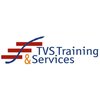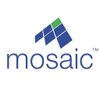Prepare for Your Chrysalis Interview with Real Experiences!
View interviews4 Chrysalis Jobs

Learning Transformation Anchor
Chrysalis
posted 3+ weeks ago
Job Role Insights
Flexible timing
Job Description
The transformation of 5000 children will lie in your hands (prior experience in working with schools required) .Job Summary:
The Learning Transformation Anchor is responsible for leading, designing, and driving the transformation of learning and development strategies within the organization. This role requires a strategic thinker who can align learning initiatives with business goals, implement innovative learning solutions, and foster a culture of continuous learning. The individual will work closely with senior leadership, HR, and other stakeholders to transform and modernize the learning ecosystem.
Key Responsibilities:
Learning Strategy Development and Execution:
Design and implement a comprehensive learning transformation strategy aligned with the organization’s vision, business goals, and employee development needs.
Lead efforts to evolve the learning environment by integrating new technologies and methodologies (e.g., digital learning platforms, e-learning, mobile learning, etc.).
Ensure that learning programs support the business’s goals and employee performance at all levels.
Program Design and Delivery:
Develop and oversee the creation of learning content, curriculum, and programs to meet diverse learning needs.
Work with business leaders to identify learning gaps and areas for skill development.
Ensure learning solutions are scalable, accessible, and impactful across different business units.
Stakeholder Collaboration and Relationship Management:
Collaborate with senior leadership, HR, and business units to identify key talent development initiatives and prioritize them.
Act as the liaison between business leaders and the learning team to ensure alignment of learning programs with organizational needs.
Build and maintain relationships with external vendors and subject matter experts to enhance the quality of learning solutions.
Change Management and Continuous Improvement:
Lead the change management processes associated with learning transformation initiatives.
Advocate for the adoption of new learning technologies and methodologies.
Continuously monitor the effectiveness of learning programs and initiatives, implementing improvements based on feedback and performance metrics.
Data-Driven Decision Making:
Use data and analytics to assess the effectiveness of learning programs and their impact on business performance.
Provide regular reporting on learning metrics to senior management, demonstrating ROI and effectiveness.
Learning Culture Advocacy:
Foster a culture of continuous learning, self-development, and knowledge sharing across the organization.
Promote the value of learning and development at all levels of the business, ensuring that learning is viewed as a key element of career growth.
Leadership and Team Management:
Lead and mentor a team of learning professionals, ensuring that team members are aligned with strategic goals.
Manage the operational aspects of learning programs, including budgeting, timelines, and resource allocation.
Employment Type: Full Time, Permanent
Read full job description
What people at Chrysalis are saying
Anchor salary at Chrysalis
reported by
2
employees
with 3-6
years exp.

₹5.4
L/yr - ₹6.9
L/yr
26%
less
than the average Anchor Salary in India
View more details
What Chrysalis employees are saying about work life
based on 68 employees
Flexible timing
Monday to Saturday
Within city
Day Shift
Similar Jobs for you
Marketers
1-3 Yrs
Chennai
Marketing, Product Marketing, Campaign Management
Share an Interview


































